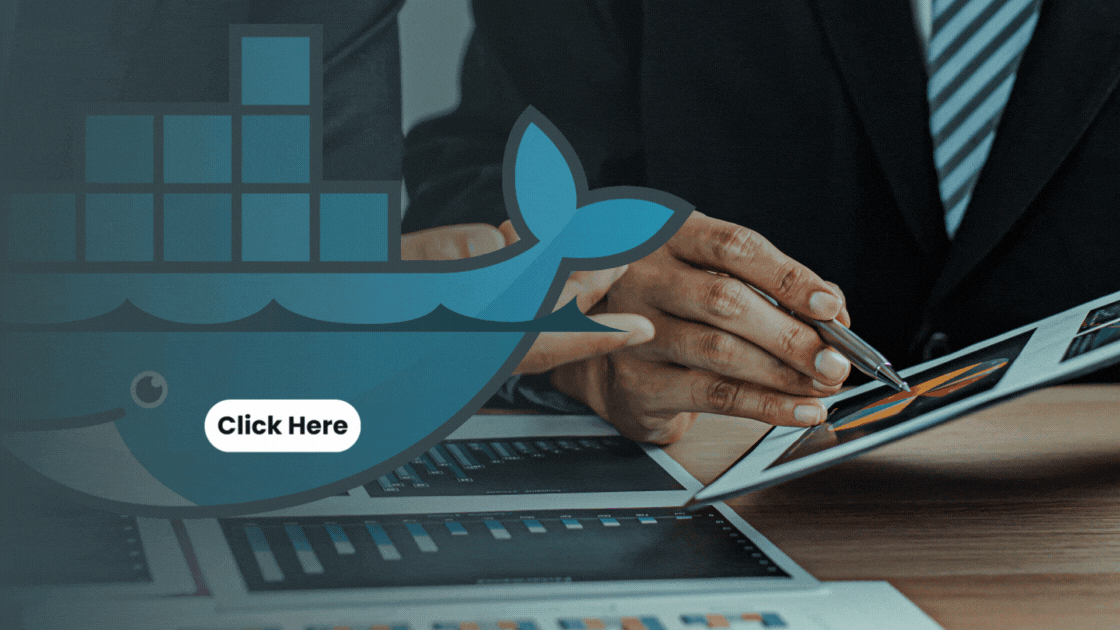My Docker Journey: From Zero to Hero
 Abhay Dandge
Abhay Dandge
Introduction
Imagine a world where software deployment is as easy as a single command. This was Docker's promise that drew me in. It was very fascinating to deploy a web page in a few seconds whereas on the other side, it will take hours to set up a web server, not just that, but also it has many more use cases.
In terms, it offers portability, consistency, and scalability for deploying applications in different environments. Docker containers are lightweight, isolated, and easy to deploy, making them a popular choice for modern application development and deployment.
In this artical we will going to cover my docker journey from scrach also how should a beginer can get started in docker with ease. So bukele up your sit belt for this amazing docker journey.
Chapter 1: Discovering Docker
I am very facinated about DevOps culture. At its essence, a DevOps culture involves closer collaboration and a shared responsibility between development and operations for the products they create and maintain. This helps companies align their people, processes, and tools toward a more unified customer focus
Then learning Docker must be your priority when it comes to DevOps tooling that's what I think. It will cover your core containerization concept as well as it also help you with your DevOps journey to climb the ladder further.
I encountered Docker around 3 months ago as I was trying to learn DevOps tools after passing my RHCSA (RedHat Certified System Administrator) exam. Getting a grasp of the core concepts of Linux is very important if anyone wants to enter the DevOps world.
And the first day of learning about blew my mind when I heard of the use case/what docker can provide to a Tech junky. As I have some minor experience in development, it was very time-consuming to set up an environment and I had to be very careful that everything worked properly & set up accordingly. If think which everyone may relate is to install the Python interpreter and up it to the environment & in the hope that everything should work properly then the coding process comes but if we think of docker it's just easy just pull a Python image from the registry copy your code & it's run perfectly fine and no worry about anything else. And easy to share with others by just pushing it to your docker hub registry. That's what moved me to learn more about Docker.
Chapter 2: Key Learnings
This are some key learnings that will help to understand docker concept point by point.
Understanding Containers vs. Virtual Machines
Containers vs. VMs: Containers are lightweight as they share the host OS kernel, unlike VMs which run separate operating systems.
Practical Insight: Containers are ideal for microservices architecture, providing isolated environments for each service.
Mastering Docker Commands and Dockerfile
Essential Commands: Learn fundamental commands such as
docker run,docker build,docker pull,docker push,docker ps,docker stop, anddocker rm.Dockerfile Basics**:** Key instructions include
FROM,RUN,COPY,WORKDIR, andCMD. Efficient Dockerfiles lead to lightweight and secure images.
Utilizing Docker Compose
Multi-Container Applications: Docker Compose helps define and manage applications with multiple services through a single
docker-compose.ymlfile.Practical Insight: Simplifies setting up and running complex applications.
Managing Docker Images and Containers
Image Management: Regularly list and remove unused images to save space.
Container Management: Manage running and stopped containers with appropriate commands.
Practical Insight: Keep the Docker environment efficient by cleaning up regularly.
You can also check out my other blog which will give a brife on Docker & Devops tooling.
Chapter 3: Challenges & tips.
As far as I can tell, the challenges in this Docker journey have gone smoothly so far. However, the key point is to give it your all to understand the basic core concepts properly with self-dedication. The main point for those new to Docker is to focus on practice and trying out new things, which will help you a lot. You will be fine with this. As the journey goes further, you will learn much more, and I am open to hearing what your thoughts are.
Start with the basics: Understand the fundamental concepts of containers and how they differ from virtual machines.
Practice: Experiment with simple Dockerfiles and commands to build confidence.
Learn continuously: Stay updated with best practices and security measures.
Utilize resources: Make use of tutorials, documentation, and community forums for guidance and support.
-
Capter 4: Future Plans
After Docker, it will be great to learn other containerization tools as the basics are not going anywhere & I think it will just be easy to grasp other tools like #podman #containerd #buildah in heat. As of going to start the Podman from tomorrow so stay tuned.
Chapter 5: Conclusion
Reflection:
Summarizing my Docker journey, it has transformed my approach to software development and deployment, significantly enhancing efficiency and consistency. Embracing Docker has allowed me to streamline workflows, adopt microservices architecture seamlessly, and integrate continuous deployment practices effectively. This journey has not only deepened my understanding of containerization but also bolstered my career in DevOps by equipping me with invaluable skills and insights.
I encourage you to share your Docker experiences, challenges, and successes. Your insights can inspire and help others on their Docker journey.
Feel free to follow my blog for more detailed guides and tutorials. Let's connect on LinkedIn and Twitter (X) to continue the conversation and stay updated with the latest in DevOps and containerization.
LinkedIn: https://www.linkedin.com/in/abhaydandge/
Twitter (X): https://x.com/ABHAYDPATIL96
Traineing & guided by Ashutosh S. Bhakare : special thanks
:)
Subscribe to my newsletter
Read articles from Abhay Dandge directly inside your inbox. Subscribe to the newsletter, and don't miss out.
Written by

Abhay Dandge
Abhay Dandge
Hello, I'm Abhay, a DevOps Engineer passionate about optimizing operations through automation, continuous integration, and deployment. Over the past year, I've sharpened my skills in the fast-paced world of DevOps and Cloud Computing. My journey has been defined by hands-on experience and a commitment to exploring the latest technologies. ╭━━━╮╱╱╱╱╱╭━━━╮ ╰╮╭╮┃╱╱╱╱╱┃╭━╮┃ ╱┃┃┃┣━━┳╮╭┫┃╱┃┣━━┳━━╮ ╱┃┃┃┃┃━┫╰╯┃┃╱┃┃╭╮┃━━┫ ╭╯╰╯┃┃━╋╮╭┫╰━╯┃╰╯┣━━┃ ╰━━━┻━━╯╰╯╰━━━┫╭━┻━━╯ ╱╱╱╱╱╱╱╱╱╱╱╱╱╱┃┃ ╱╱╱╱╱╱╱╱╱╱╱╱╱╱╰╯⠀⠀⠀⠀⠀⠀⠀⠀⠀⠀⠀⠀⠀⠀⠀⠀⠀⠀⠀⠀⠀⠀⠀ In my tech toolkit, I’ve got the skills to make things run smoother: containerization, cloud platforms, and flawless CI/CD pipelines. My goal? To supercharge software delivery for organizations, making it faster and more efficient, all while keeping things top-notch and rock-solid. Let’s keep it cool and reliable! 🅃🄴🄲🄷 🅂🅃🄰🄲🄺 🔲 Cᴏɴᴛᴀɪɴᴇʀɪᴢᴀᴛɪᴏɴ -: Dᴏᴄᴋᴇʀ | Pᴏᴅᴍᴀɴ | Bᴜɪʟᴅᴀʜ | CᴏɴᴛᴀɪɴᴇʀD 🔲 Cᴏɴᴛᴀɪɴᴇʀ Oʀᴄʜᴇsᴛʀᴀᴛɪᴏɴ -: Kᴜʙᴇʀɴᴇᴛᴇs | Dᴏᴄᴋᴇʀ Sᴡᴀʀᴍ 🔲 Cʟᴏᴜᴅ Pʟᴀᴛғᴏʀᴍs -: AWS 🔲 Aᴜᴛᴏᴍᴀᴛɪᴏɴ ᴀɴᴅ Sᴄʀɪᴘᴛɪɴɢ-: Bᴀsʜ, Pʏᴛʜᴏɴ * Linux Administration (RHCSA) 🔴 * DevOps methodologies. * CLA (Certified Linux Admin) * CCA (Certified Container Admin) -̶-̶-̶-̶-̶-̶-̶-̶-̶-̶-̶-̶-̶-̶-̶-̶-̶-̶-̶-̶-̶-̶-̶-̶-̶-̶-̶-̶-̶-̶-̶-̶-̶-̶-̶-̶-̶-̶-̶-̶-̶-̶-̶-̶-̶-̶-̶-̶-̶-̶-̶-̶-̶-̶-̶-̶-̶-̶-̶-̶-̶-̶-̶-̶-̶-̶-̶-̶-̶-̶-̶-̶-̶-̶-̶-̶-̶-̶-̶-̶-̶-̶-̶-̶-̶-̶-̶-̶-̶-̶-̶-̶-̶-̶-̶-̶-̶-̶-̶-̶-̶-̶- How can I help you? I can help you with the optimization and scalability of your infrastructure with my expertise in Linux, Containers, AWS, and orchestration. From streamlining deployments with Docker and Kubernetes to maximizing cloud efficiency, I'll ensure your systems are robust and scalable. Let's tackle your challenges and take your projects to the next level. Let's connect and discuss how we can collaborate! :) -̶-̶-̶-̶-̶-̶-̶-̶-̶-̶-̶-̶-̶-̶-̶-̶-̶-̶-̶-̶-̶-̶-̶-̶-̶-̶-̶-̶-̶-̶-̶-̶-̶-̶-̶-̶-̶-̶-̶-̶-̶-̶-̶-̶-̶-̶-̶-̶-̶-̶-̶-̶-̶-̶-̶-̶-̶-̶-̶-̶-̶-̶-̶-̶-̶-̶-̶-̶-̶-̶-̶-̶-̶-̶-̶-̶-̶-̶-̶-̶-̶-̶-̶-̶-̶-̶-̶-̶-̶-̶-̶-̶-̶-̶-̶-̶-̶-̶-̶-̶-̶-̶-̶-̶-̶-̶-̶-̶-̶-̶-̶-̶-̶-̶- ………………………………………………………………… #devops #devsecops #sre